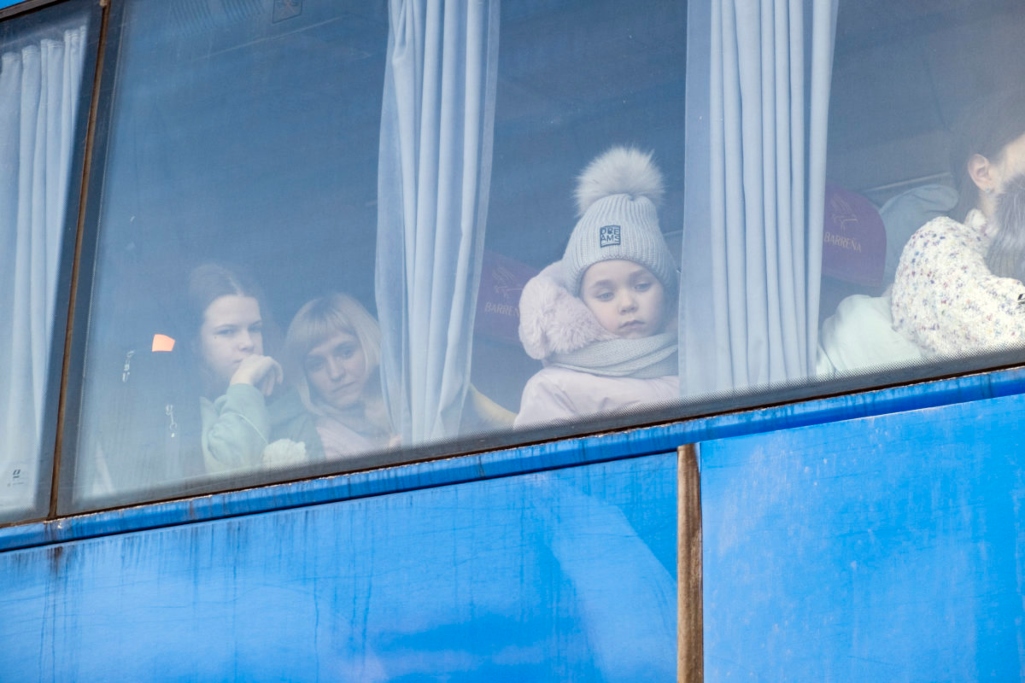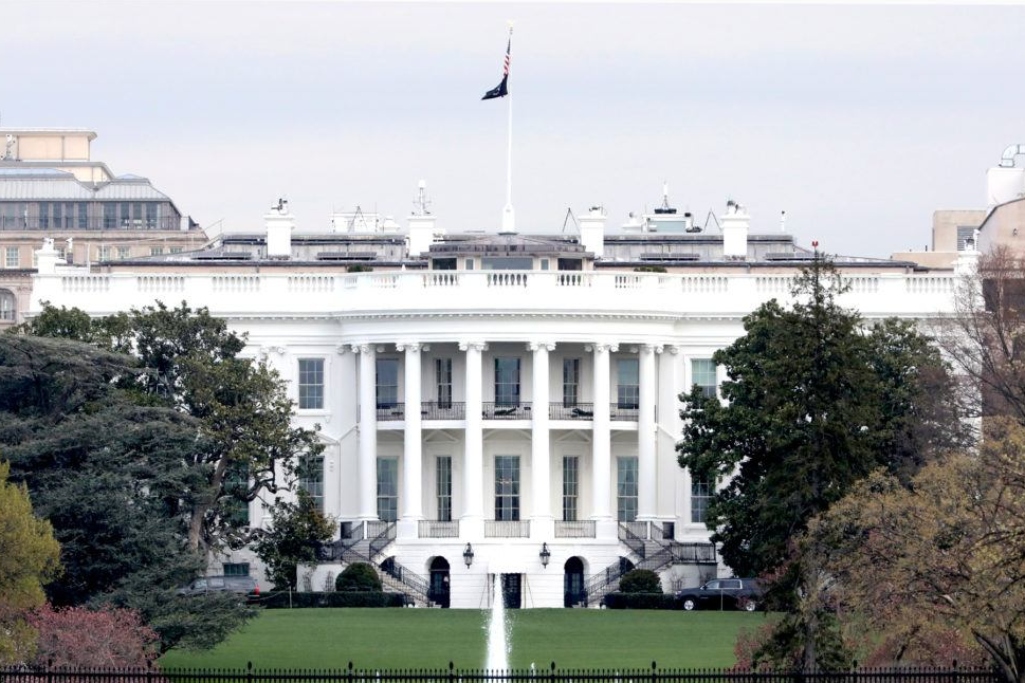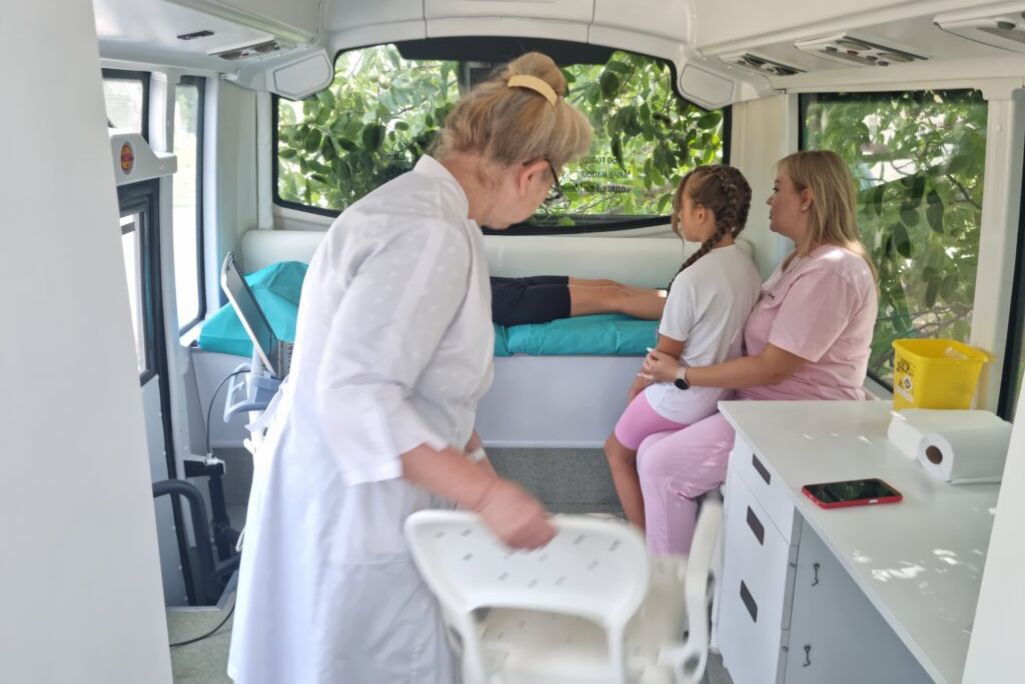
Ukrainian refugees – mostly women and children – pour across the border near the Polish town of Chelms. Most families are separated as men aged 18-60 are not allowed to leave the war-torn country.
Years after Russia’s bombs stop exploding and loved ones are eulogized, displaced Ukrainian refugees may still need counseling and intervention to deal with the loss.
Southern Baptist churches, ministries and entities are already on the ground in Europe training churches and ministers in trauma-informed care, leaders told Baptist Press (BP).
“Typically on average, we’ve heard it may take two to three generations to find some deeper levels of healing and restoration,” said Beth Perez, director of global education for Lifeline Children’s Services (LCS) in Birmingham, Ala., which has served orphans and families in Ukraine and Romania for nearly 20 years. “Doesn’t mean that there’s not hope in this generation, in this moment. We want to definitely encourage and empower those walking through this now. They’re strong. They’re resilient. They have honor and dignity and respect in that, by all means.
“But we’ve just foreseen that [there are] going to be challenges, especially if it goes unmet. If we’re not meeting those needs now, we’re not intervening for them, helping them process this trauma, there’s going to be some of those more long-term impacts for sure.”
In the midst of tragedy, Bowling Green, Ky., pastor Will Burnham sees the widespread displacement of millions of Ukrainians as an opportunity to grow God’s kingdom.
“It’s an Acts 8:1 moment where God’s distributing His people,” Burnham told BP from Warsaw. “There’s probably 100,000 Ukrainian believers that are being distributed now throughout Europe, and just what an opportunity it is to take the gospel throughout Europe and make disciples and plant churches.
“We just want to be able to meet the Lord wherever He’s at work.”
Burnham, international catalyst and campus pastor of Living Hope Baptist Church (LHBC), took an eight-member fact-finding team of ministers to Poland to find churches and others to partner with in trauma counseling, evangelism and discipleship for Ukrainian refugees.
“The main thing with trauma counseling is listening and letting people share what they’re comfortable sharing,” Burnham said. “And then, there’s a way to bridge that with a traumatic story from scripture like Joseph (Jacob’s son) and show how God can use what is intended for evil for good. And bridge to being able to share the true hope through the gospel.”
LHBC is partnering with the International Mission Board and other churches, both in the U.S. and abroad, to train ministers in trauma care and counseling to help Ukrainian refugees wherever they settle, Burnham said.
LCS is also preparing to train Ukrainians, Romanians and other Europeans in trauma-informed care. The work will take the concerted commitment of several gospel-centered and likeminded groups for an extended period, Perez said.
Among LCS’s partners are Southern Baptist Send Relief, the Regen Foundation, Heritage Ukraine and the Romania Without Orphans Alliance. Missionaries Madison and Yuriy Perekoity, currently stateside, will return to Europe beginning in late April to train churches and ministers in trauma care for refugees.
“This won’t be a ‘one-person-can-save-the-day’ mentality. This will be the church being the church and working together in unity, an ‘all hands on deck’ approach,” Perez said. “Research shows this could even be a multigenerational recovery. We’re looking at long-term. We don’t want to just come in in this moment. … Our heart is definitely going to be to walk alongside long-term.”
Rick Morton, LCS’s vice president of engagement, said bringing trauma-informed care resources to families and churches ministering to children has long been part of LCS’s necessary work.
“We’re taking what we’ve learned in all the years of working in trauma and adapting some of those materials and some of that training,” Morton said, “and will begin to deploy that in Romania.”
Vulnerable to Post-traumatic Stress Disorder, refugees have typically lost a sense of felt safety and can become vulnerable in looking for ways to cope, Perez said. Refugees can face lingering challenges that expose them to such ills as exploitation, substance abuse and spousal abuse.
“I would only imagine it would be a natural human response to turn towards anything you can to kind of decrease the stress, which ultimately increases the stress,” Perez said. “If we’re not pointing them to the true hope, the true healer, the true provider of their needs, it’s natural human instinct, unfortunately, to seek out those resources to help us try to calm down.
“Everyone’s more vulnerable and when people are more vulnerable, that’s when we see some exploitation happening,” she said. “I’ve already been reading some articles about how young girls at the borders, when they’re leaving Ukraine, some not great people are waiting for them, to take advantage.”
Burnham found opportunities to share the gospel during his fact finding trip, receiving he said, “every response you would typically get in the States. Some are excited to hear it, some are reserved and some don’t want to listen.”
He implores Americans to learn to share the gospel now, in order to be prepared when God allows them to meet refugees in need of Good News.
“Learn how to share the gospel and make disciples in the States,” Burnham said, “so they’re ready to do it when God sends them somewhere else.”
(EDITOR’S NOTE – Diana Chandler is Baptist Press’ senior writer.)


